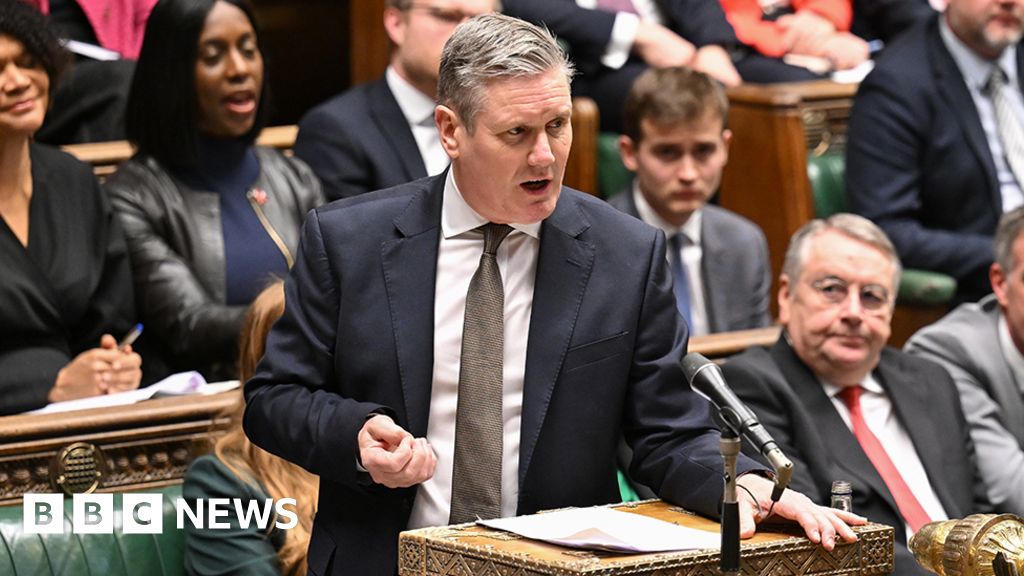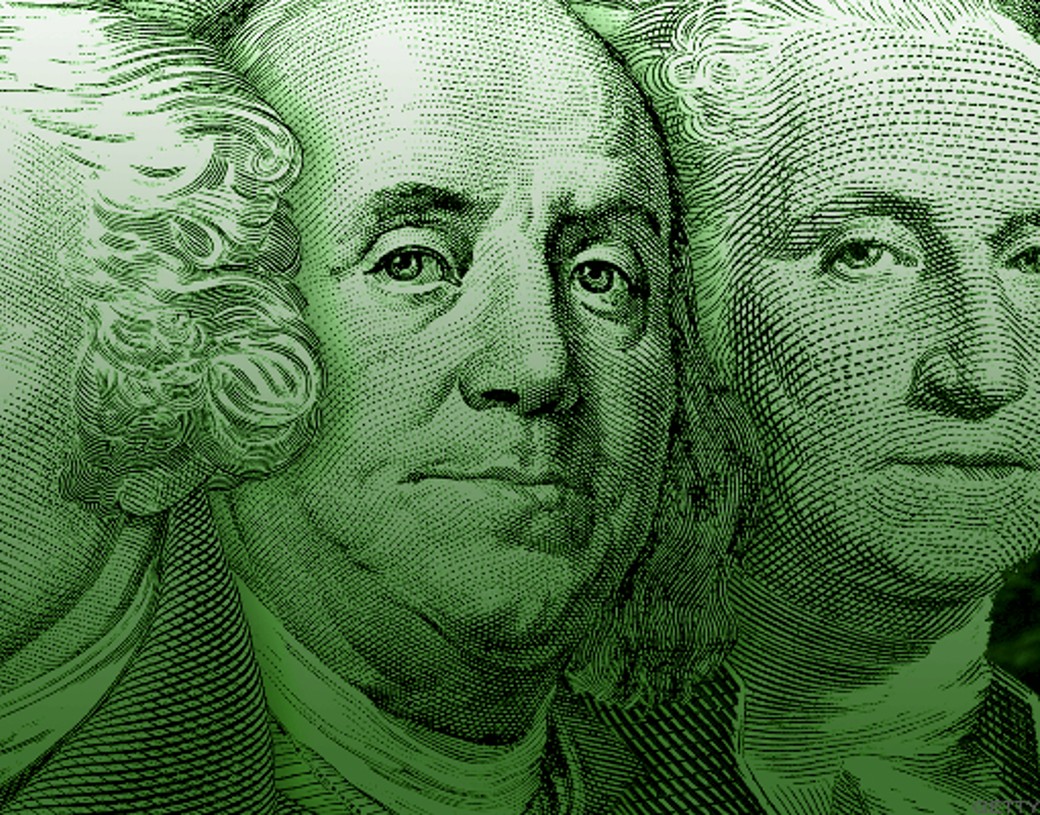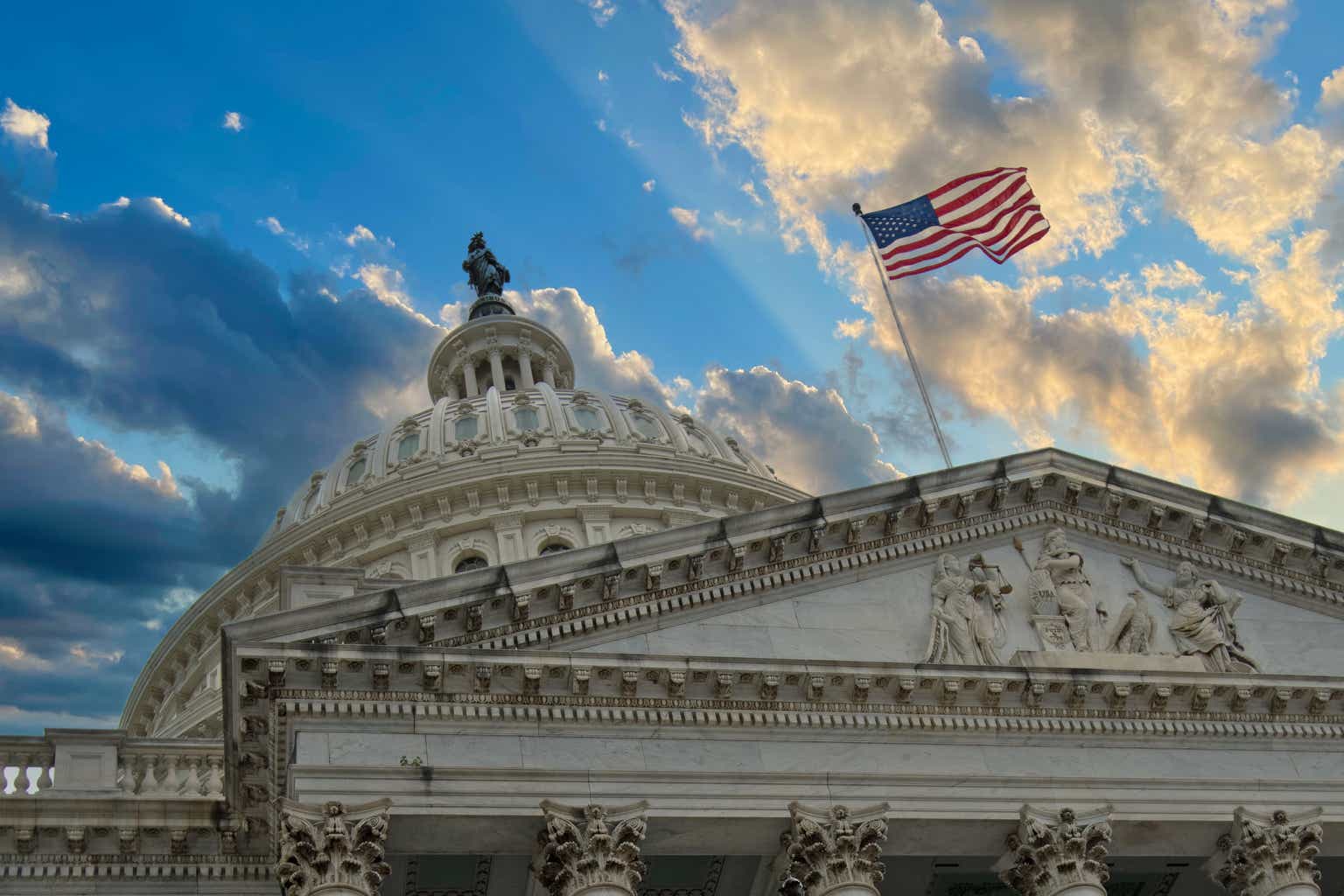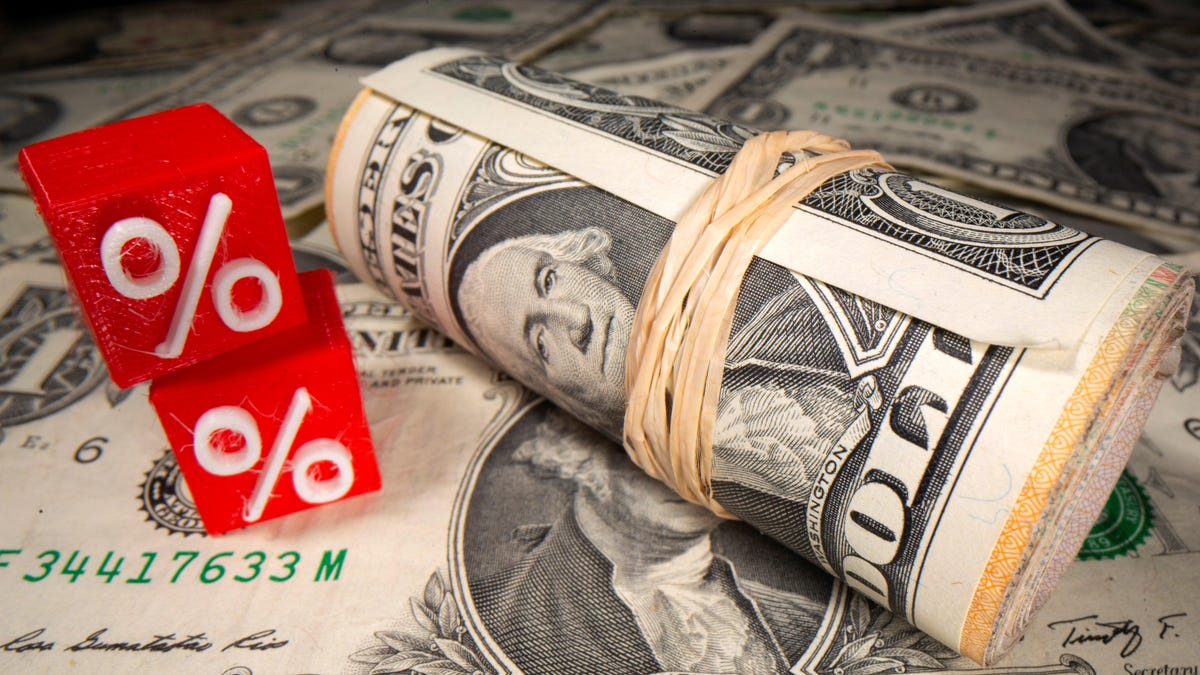The article discusses the 25 most indebted companies in the world in 2024, highlighting the impact of high interest rates on corporate debt and the reasons why many businesses rely on debt.

A nonprofit organization has launched a billboard campaign in Times Square, New York, warning the public about the $34 trillion government debt and its threat to the nation's prosperity and stability.

US job openings remained stable in January, indicating a healthy job market, with employers posting around 8.86 million vacancies, slightly lower than in December but in line with expectations. Despite declining from record highs, job openings remain historically high, and the labor market has proven resilient even amidst rising interest rates and inflation concerns.

China has set an ambitious target of 5% GDP growth this year, but hurdles such as deflationary risks and external pressures make achieving this goal difficult, although the government has reassured that it has sufficient tools to support the economy.

Nouriel Roubini, a prominent economist, warns that a Trump reelection in November could pose a significant risk to the global economy, particularly due to Trump's economic policies, which could worsen inflation and the national debt problem.
Amid concerns about rising inflation, there are signs that inflation may settle down in the near future, as indicated by the recent decline in core numbers of personal consumption expenditures and the expectation that lower rates will lead to a decline in consumer prices, presenting an opportunity for investors to profit from bond dividends.

Almost 100 top Canadian business leaders have signed an open letter urging the Canadian government to change investment rules for pension funds to encourage them to invest in Canada.
Egypt has floated its currency and secured an increased bailout loan from the International Monetary Fund (IMF) in an effort to stabilize its economy, which has been hit by a shortage of foreign currency and high inflation. The move includes raising interest rates and is aimed at attracting foreign investment and combating inflationary waves.

Labour leader Keir Starmer has accused the Conservative Party of losing control of the economy and putting a burden on working people to pay more for less.

The IMF has approved an increased $8 billion loan to Egypt due to the weakening of the Egyptian pound and the need for a more flexible exchange rate.

The global economy is recovering from the COVID-19 pandemic, but faces challenges such as the Russia-Ukraine war and climate change risks; however, Asian economies have performed well. Chinese investors are selling real estate holdings due to a property market crisis, and global commercial property deals have declined. Asia is projected to have high growth potential, while the US awaits a decision on easing its tightening policy. Leading companies in large economies include NVIDIA, Li Auto, and Reliance Industries. The 30 countries with the highest GDP in 2023 include Argentina, Philippines, Netherlands, Nigeria, Vietnam, Bangladesh, Pakistan, Thailand, Taiwan, Poland, Australia, Iran, Egypt, Saudi Arabia, Canada, Spain, South Korea, Italy, Mexico, Turkey, France, the United Kingdom, Brazil, Indonesia, Russia, and more.

The US national debt is rapidly growing at a rate of $1 trillion every 100 days, posing a significant risk of a financial disaster that could affect not only the US but also the global economy, leading to concerns from BRICS and other developing countries who fear that their economies could crash due to the US dollar debt and prompting them to consider de-dollarization as a way to maintain stability.

Hiring by U.S. companies in February fell below expectations, with 140,000 jobs added, according to the ADP National Employment Report.

Federal Reserve Chair Jerome Powell's written testimony to Congress suggests that the Fed is not in a hurry to cut interest rates, potentially causing more financial difficulties for Americans who have already faced high borrowing costs for nearly two years.

The UK's economy is expected to grow slightly faster than expected, with growth rates predicted to rise to 0.8% this year and 1.9% in 2025, according to the Office for Budget Responsibility (OBR), allowing the government to maintain spending and implement certain measures without significantly raising borrowing. However, the country's debt is still set to rise over the next few years.

The ADP reported that American businesses added 140,000 new jobs in February, indicating a potential slowdown in labor demand compared to the previous year.

Millions of seniors have started returning to the workforce due to rising costs and inadequate savings as inflation and the cost of living continue to increase.

The Bank of Canada has decided to keep its policy rate at 5 percent, expressing concerns about the inflation outlook and stating that it is too early to consider lowering the interest rate.

China's top economic officials believe that the country has enough flexibility to achieve its target of around 5% economic growth for the year, despite acknowledging the challenge, as exports and bank loans have shown positive growth in the first two months of the year, and there are additional policy tools available to stimulate growth such as reducing the reserve ratio requirement and issuing long-term bonds.

China's plan to boost economic growth is deemed insufficient by experts to address the country's debt and consumer confidence crises, as it falls short of the transformative reforms needed. The plan aims to shift the economy's focus to innovation, manufacturing, and technology, but it lacks substantial changes to alter the economic trajectory and address structural issues. Additionally, China's reliance on government spending and commercial investment, rather than consumer spending, has hindered sustainable growth, leading to economic unease and dampened consumer spending.

Rent and shelter costs in the US have increased while inflation has cooled in other sectors, potentially forcing the Federal Reserve to keep interest rates higher for longer than expected and delaying rate cuts in 2024.
A new study suggests that shrinkflation, where companies charge the same or more money for smaller portions, has been a major contributor to inflation in recent years.

Wall Street strategists are concerned that the US economy could be heading towards a 1970s-style stagflation scenario, with high inflation and economic stagnation, as recent signs suggest that progress on inflation is stalling.

The US economy is showing mixed signals, but overall it remains mostly positive, with rising GDP, moderate inflation, and low unemployment; investors should consider holding onto US equities and bonds while also considering currency-hedged exposure to international markets.

Turkish house prices have surged by 12 times over the past nine years, making them nearly as expensive as those in Paris and London, driven by factors including currency fluctuation, inflation, and increased demand after the pandemic, while high interest rates and declining household income have slowed down the market.

China's Premier Li Qiang's decision to skip a press conference during the annual "Two Sessions" gathering raises concerns among investors as the country faces an economic slowdown and declining foreign investment.

The Federal Reserve's target for inflation suggests driving it below 2%, but experts believe the Fed should clarify its target to avoid confusion and explain that it won't aim for very low inflation in the future.

China's leaders defend their realistic GDP goal and vow to address economic challenges, including a property crisis and local government debts, during the annual 'two sessions'.

Private sector employment in the US rose by 140,000 in February, below expectations, while annual pay was up 5.1% year-over-year, according to Automatic Data Processing (ADP) data, suggesting a solid labor market but no impact on the Fed rate decision.

Federal Reserve Chair Jerome Powell will update lawmakers on the economy and prospects for interest rate cuts, with concerns over inflation and "exuberance" in the conversation, as the U.S. heads into a politically charged election year.

Despite the booming stock market and easing inflation, many Americans are feeling the financial pinch as prices for everyday items and activities continue to rise, leaving them unable to afford things like restaurant meals, concert tickets, snacks, streaming services, beauty services, and pet care.

Since the Federal Reserve began raising interest rates two years ago, 50% or more of consumers who applied for a loan or credit card have been denied, leading to tighter credit markets and more rejections for mortgages, rental applications, and home equity loans.

The US dollar is appreciating against the Pakistani rupee, creating speculation and putting pressure on the government to increase imports and secure a new loan from the IMF.

The Manufacturers Association of Nigeria (MAN) has reported that 767 manufacturers shut down operations and 335 became distressed in 2023 due to exchange rate volatility, rising inflation, and other economic challenges, exacerbated by the introduction of the Expatriate Employment Levy by the Federal Government, which MAN argues contradicts President Bola Tinubu's economic agenda and tax reform initiative and will have significant negative consequences on the manufacturing sector and the overall economy.

US lenders remain at risk of a financial crisis due to high interest rates and exposure to commercial real estate, warns the International Monetary Fund (IMF).

Existing-home sales hit their lowest level since 2010 due to sky-high home prices and mortgage rates, creating a frozen housing market with low supply and limited affordability.

Despite high inflation, Americans are still shopping, with Telsey Advisory Group Founder Dana Telsey believing consumers are "in a good place" while UBS Analyst Michael Lasser finds shoppers to be "fatigued" and spending to be more episodic. Target's COO and CFO also stated that consumers are "remarkably resilient," with analysts predicting a positive outlook for the retailer.
Federal Reserve Chair Jerome Powell's testimony to US lawmakers, corporate earnings reports, and the Fed's Beige Book report on the US economy are among the top headlines and events expected on Wednesday, March 6.
Wall Street experienced a sharp decline as Apple and the chip sector's weakness dragged down the Nasdaq ahead of upcoming economic data and comments from Fed Chair Jerome Powell, while data indicated a slowdown in the US services industry growth but an increase in new orders, suggesting underlying strength; the drop was also attributed to recent market rallies and concerns over inflation and interest rate cuts, with traders projecting a 67.2% chance of the first rate cut in June.

Cities and states across the US are offering cash and other perks to attract newcomers, with programs such as Tulsa Remote in Oklahoma, Choose Topeka in Kansas, Remote Shoals in Alabama, the Greater ROC Remote program in New York, Ascend West Virginia, and various initiatives in Indiana, Kentucky, Michigan, and Alaska offering incentives and benefits to entice people to move and reside in their locations.

Oil prices dropped nearly 1% due to doubts about China's economic growth target and declining investor risk appetite, despite support from a weaker U.S. dollar.

Millennial women are expected to inherit a significant amount of money, leading to "the feminization of wealth" and seismic changes in the economy and society, with the potential for them to manage at least $30 trillion by 2030, according to a survey by Ellevest; this transfer of wealth will also allow women to challenge long-held money taboos, leave relationships, invest in climate causes, and support issues like reproductive rights and women's health.

A large group of people raided a warehouse in Nigeria's capital, stealing over $128,000 worth of food amid the country's cost of living crisis.

Americans spent a record $1.1 trillion on interest payments last quarter, with nearly half of that spending going towards non-mortgage debt, as the Federal Reserve's higher rates impact various categories.

North Carolina denies proposal to raise homeowners insurance rates while other states experience record high increases. California approves rate hike request by Allstate, resulting in potential 30% increase in insurance coverage costs. Homeowners insurance rates have risen by 35% nationwide on average over the past two years, with Florida experiencing the highest increase at 68%. Auto insurance costs have also risen, with a 43% increase over the last three years and a 19.2% increase in October. Some drivers have cut back on coverage due to rising costs, while uninsured motorists have increased to 14%.

Cuba is experiencing severe blackouts and has switched off nearly three-quarters of public lighting during peak hours due to a growing energy shortage, exacerbating the country's deepening economic crisis.

Cookie Monster believes that "shrinkflation" is making his cookies smaller, prompting President Biden and the White House to call for companies to stop unfair pricing, while an economist indicates that cookie inflation has decreased but prices are still higher than before the pandemic.

Renowned investor Kyle Bass has revealed his top real estate investment picks as Texas, Florida, and Tennessee, citing affordability, expansive activity, and natural resources as key factors, while labeling the West Coast and Northeast as high-cost and mismanaged jurisdictions. Bass emphasizes the importance of being positioned to exploit migration trends and also ventures into environmental sustainability through his latest venture, Conservation Equity Management.

The erosion of the American dream and the widening wealth gap are becoming growing concerns among Americans, as investment strategist Luke Lloyd warns about the decline and advocates for increased taxation on the wealthy and corporations.

JPMorgan's Chief Market Strategist warns that investors may be too complacent as the risk of stagflation in the US increases, with inflation staying well above the Federal Reserve's target and implications for asset allocation.
